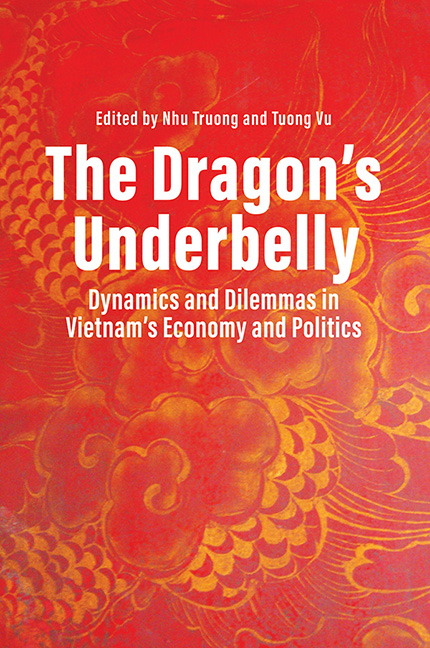Chapter 5 - Vietnam’s Economic Dependence on China: Understanding Vulnerability through a Typology of Trade Shocks
Published online by Cambridge University Press: 09 January 2024
Summary
China’s role in Vietnam’s rapid economic development is significant but contentious. In the past two decades, Vietnam has significantly benefited from integration into the regional production network anchored in China. Yet there have been mounting concerns in Vietnam that close economic ties between the two countries are asymmetrical, and that the Vietnamese economy is increasingly dependent on China. For years, policymakers, experts and observers have expressed worries about the country’s high reliance on Chinese inputs in its export industries and the deep penetration by Chinese firms in its domestic consumer and construction markets (Tran 2019; Tuoi Tre News 2013; Ngan 2014). Of particular concern is that, despite the exponential growth in Vietnam’s exports and the number of free trade agreements (FTAs) signed by Vietnam to diversify its trade relations, raw materials and equipment used by the country’s manufacturing exporters continue to be dominated by Chinese products, and there is no evident sign that the situation is improving (Ngan Anh 2014).
That this is taking place amid increasingly complex geopolitical competition between the United States and China adds another layer of complexity (Vu 2015; Vu 2017, pp. 297–8). China has increasingly leveraged its economic might to achieve foreign policy goals by employing various inducements and sanctions (Chheang 2018; Reilly 2013). Inducements, such as infrastructure projects under the Belt and Road Initiative, may be attractive to many, although simultaneously China is increasingly using economic sanctions to change the behaviour of other states (Hufbauer and Jung 2020). It is unsurprising that economic dependence is considered to pose a much greater political risk in Vietnam because of its territorial dispute and historical tensions with China (Tuoi Tre News 2013).
Concerns over Vietnam’s economic dependence largely arise from the fact that China is its largest trading partner. Moreover, Vietnam continues to record a large trade deficit with China. The asymmetric nature of bilateral trade between Vietnam and China worries many. For Vietnam, China is too big and too important. In contrast, for China, Vietnam is a relatively small trading partner in its global trade.
- Type
- Chapter
- Information
- The Dragon's UnderbellyDynamics and Dilemmas in Vietnam's Economy and Politics, pp. 139 - 170Publisher: ISEAS–Yusof Ishak InstitutePrint publication year: 2022

